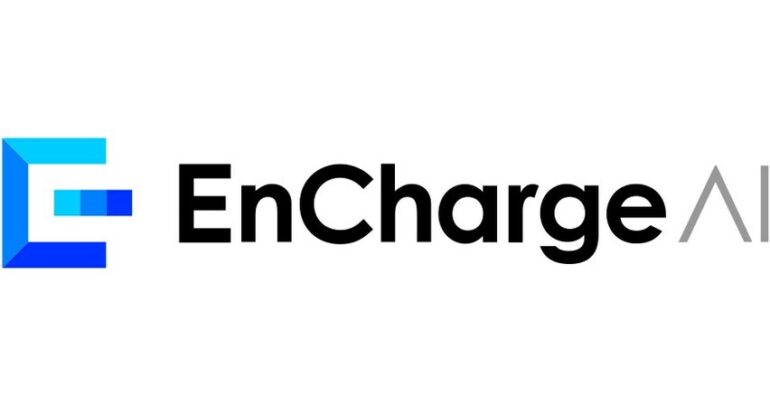TL;DR:
- EnCharge AI raised $22.6 million in funding to advance its AI-accelerating chips.
- The funding round was led by VentureTech Alliance in partnership with prominent VC firms.
- EnCharge aims to democratize AI by making it more accessible and sustainable for organizations.
- The company’s innovative hardware uses in-memory computing to accelerate AI applications while reducing power consumption.
- EnCharge was founded based on research into non-volatile memory devices and in-memory computing.
- Competition in the AI accelerator hardware market is fierce, with well-funded rivals.
- EnCharge’s claims await independent verification, but investors are optimistic about its potential.
Main AI News:
In the highly competitive realm of AI hardware, EnCharge AI emerged from the shadows about a year ago with an audacious mission: to challenge industry giants like Nvidia, AMD, Microsoft, Meta, AWS, and Intel. Now, with $22.6 million in new funding, EnCharge AI is not only alive but thriving in this fierce arena.
The recent funding round, led by VentureTech Alliance in collaboration with RTX Ventures, ACVC Partners, Anzu Partners, S5V, Alley Corp, Scout, and Silicon Catalyst Angels, brings EnCharge’s total investment to an impressive $45 million. This substantial capital injection is slated to expand EnCharge’s workforce further, which already boasts 50 talented professionals spread across the United States, Canada, and Germany. Moreover, it aims to accelerate the development of EnCharge’s AI chips and comprehensive AI solutions, as articulated by co-founder and CEO Naveen Verma.
EnCharge AI is on a mission to democratize AI, making it accessible to the 99% of organizations currently unable to afford the high costs and energy-intensive AI chips available today. Verma states, “Specifically, we’re enabling new AI use cases and form factors that run sustainably, from both an economical and environmental perspective, to unlock AI’s full potential.“
The company was founded by Naveen Verma, Echere Iroaga, and Kailash Gopalakrishnan. Gopalakrishnan, a former IBM fellow with nearly two decades of experience at the tech giant, brings a wealth of expertise to the team. Iroaga, on the other hand, previously led Macom’s connectivity business unit as VP and then GM. The roots of EnCharge can be traced back to federal grants Verma received in 2017 in collaboration with researchers at the University of Illinois at Urbana-Champaign. This research was part of DARPA’s Electronics Resurgence Initiative, which aimed to advance various computer chip technologies.
One of the key innovations stemming from this effort was the investigation of new types of non-volatile memory devices. In contrast to volatile memory found in contemporary computers, non-volatile memory can retain data without a continuous power supply, potentially making it more energy-efficient. DARPA also supported Verma’s research into in-memory computing, a technique that involves running calculations in RAM to reduce latency introduced by storage devices.
EnCharge was founded to commercialize these groundbreaking advancements. Leveraging in-memory computing, EnCharge’s hardware has the potential to accelerate AI applications in servers and network-edge devices while reducing power consumption compared to standard computer processors.
Verma emphasized, “Today’s AI compute is expensive and power-intensive; currently, only the most well-capitalized organizations are innovating in AI. For most, AI isn’t yet attainable at scale in their organizations or products. EnCharge products can provide the processing power the market is demanding while addressing the extremely high energy requirement and cost roadblocks that organizations are facing.”
Despite the lofty aspirations, it’s important to note that EnCharge has not yet begun mass production of its hardware and has only secured a handful of customers thus far. Additionally, the company faces well-funded competition in the saturated AI accelerator hardware market, with companies like Axelera and GigaSpaces also developing in-memory hardware for AI workloads. NeuroBlade has also garnered significant VC funding for its in-memory inference chip designed for data centers and edge devices.
While EnCharge’s performance claims are yet to be independently verified, its investors remain firmly supportive of its mission. Kai Tsang from the VentureTech Alliance stated, “EnCharge is solving critical issues around computing power, accessibility, and costs that are both limiting AI today and inadequate for handling AI of tomorrow. The company has developed computing beyond the limits of today’s systems with a technologically unique architecture that fits into today’s supply chain.”
Conclusion:
EnCharge’s successful funding round signifies growing interest in disruptive AI hardware solutions. The company’s mission to democratize AI and make it more sustainable has the potential to reshape the market, but it faces substantial competition and the need for independent validation of its claims. Investors’ confidence in EnCharge suggests that it may address critical challenges in computing power, accessibility, and costs, paving the way for broader AI adoption in the future.

